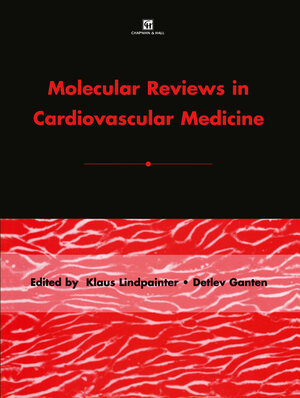
×
![Buchcover ISBN 9780412782602]()
Inhaltsverzeichnis
- 1 Basic methodology in the molecular characterization of genes.
- 2 Genetic linkage analysis in hypertension: principles and practice.
- 3 Molecular biology of renin.
- 4 Discovery of genes for essential hypertension.
- 5 Molecular regulation of smooth muscle contraction.
- 6 Molecular biology of adrenergic receptors.
- 7 Transgenic rats in hypertension research.
- 8 Cloning, expression and regulation of angiotensin II receptors.
- 9 Molecular biology and biochemistry of the natriuretic peptide system.
- 10 Molecular regulation of plasma and tissue angiotensinogen.
- 11 Molecular biology of oncogenes and cardiovascular hypertrophy.
- 12 Molecular and cellular biology of endothelin and its receptors.
- 13 Finding genes that cause human hypertension.
- 14 Methods for the reduction or ablation of gene function.
- 15 Molecular biology of the angiotensin I converting enzyme.
- 16 The molecular biology of the kallikrein-kinin system.
- 17 Prostaglandins and their receptors.
- 18 The role of apolipoproteins in lipid metabolism and atherogenesis: aspects in man and mice.
- 19 Vasopressin in the regulation of body functions.
- 20 Beyond genetic markers: hypertension genes.
- 21 Molecular aspects of signal transduction of shear stress in the endothelial cell.


